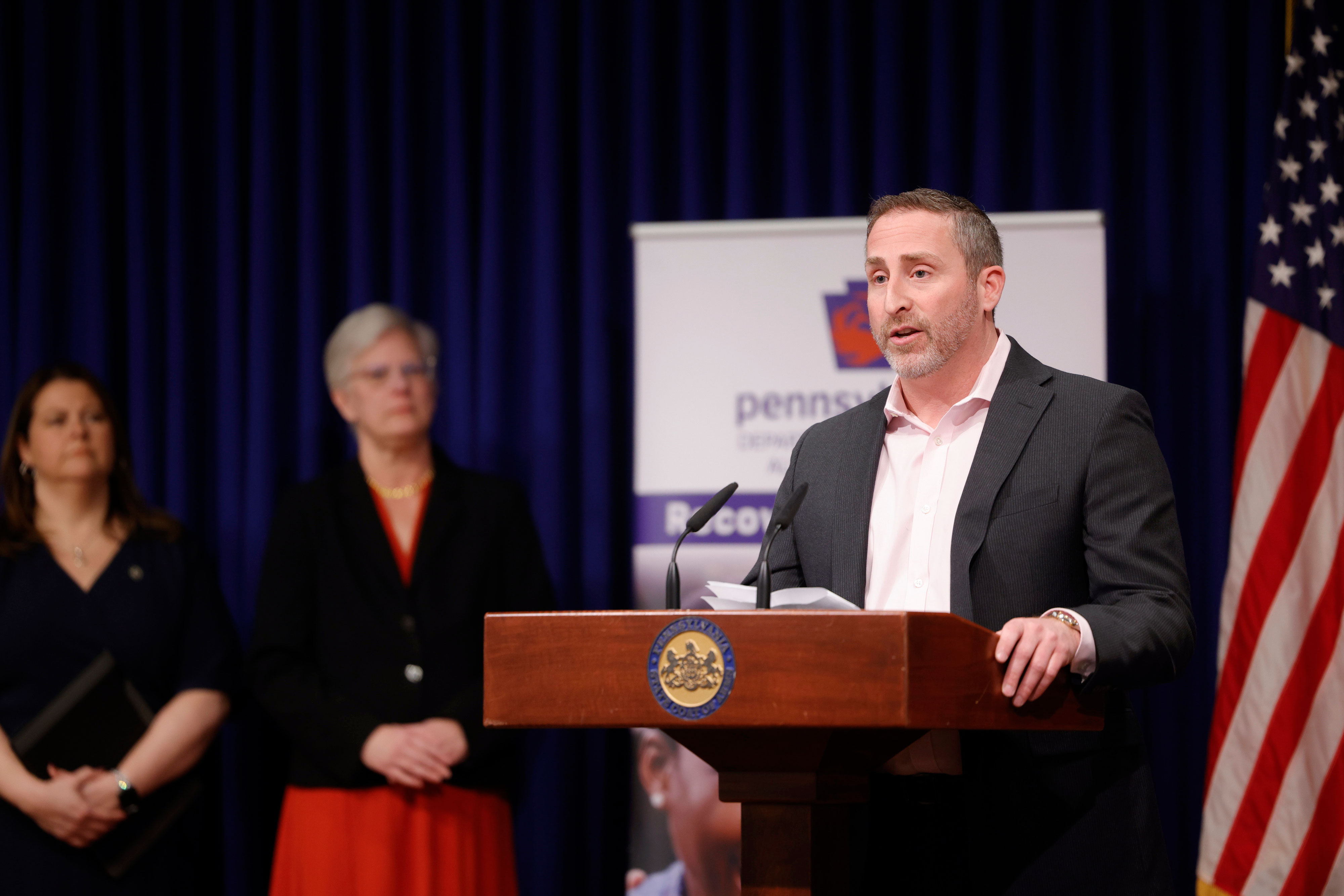From sporting events to slots and everything in between, there are plenty of options for Pennsylvania players at today’s betting avenues.
However, with sports and online gambling appearing to offer the industry’s best chance of further increasing revenue, the accessibility of the state’s expanding gambling industry – and its potential for an increase in problem gambling – is a primary concern for regulators and lawmakers who oversee the industry.
The U.S. Supreme Court opened the doors to expanded sports betting and online gambling in 2018 when it declared the Professional and Amateur Sports Protection Act – which prohibited states from legalizing gambling on professional and college sports – unconstitutional. That ruling came a year after Commonwealth lawmakers passed Act 42 of 2017, which amended the state’s gambling law to include sports betting, interactive and online gambling, and more.
With the expansion, Nevada was no longer the only state allowed to offer betting on individual games, and in the years that followed, states on the East Coast – including Pennsylvania – experienced a sharp increase in sports betting and online gambling.
Sports boost
In an interview with City & State, Kevin O’Toole, executive director of the Pennsylvania Gaming Control Board, said new technologies have “contributed significantly to revenue growth.”
“Before the gambling expansion law, we had 13 land-based casinos operating – and they were generating about $3.3 billion annually. After the expansion, it took about a year and a half to two years for that revenue to grow to over $5 billion, and now it’s approaching $6 billion,” O’Toole said.
Following the expansion, Pennsylvania now has more than a dozen sportsbooks in the state, including BetMGM, Caesars, ESPN BET, DraftKings and FanDuel.
But while Pennsylvania’s sports betting operators – and the Gaming Control Board’s revenue streams – benefit from the growing sports and online gambling industries, the risks associated with problem gambling are becoming increasingly clear to researchers and regulatory groups.
According to the Pennsylvania Interactive Gaming Assessment: Online Gambling Report 2023, online gambling participation increased to 16% last year after remaining stable at 11% in 2021 and 2022. That same year, the state’s online gambling revenue increased by more than 27% – totaling $2.1 billion in 2023 and making the state one of the top three online gambling revenue generators in the country.
“If you turn on the TV or open your phone and look at one of the ads on Facebook, the prevalence — and what I would call the infiltration of our lives related to online gambling — has just gone up,” Glenn Sterner III, assistant professor of criminal justice at Penn State Abington and lead author of the report, told City & State. “It makes sense that we saw this increase from 11% to 16% in the third year. We’re excited to see what the numbers look like for this fourth year of the report — there are early indications that we could see even more increases.”
The report, released in April and prepared by Pennsylvania State University’s Criminal Justice Research Center on behalf of the Pennsylvania Department of Drug and Alcohol Programs, summarizes three years of survey data from more than 1,800 people across the state.

The report found that not only did participation in online gambling and sports betting increase in the Commonwealth, but so did the number of reported gambling problems and the number of calls to the 1-800-GAMBLER helpline. The number of calls to the helpline for online gaming problems increased from 20% in 2021 and 2022 to 34% in 2023 – in 2022-2023 there were a total of 2,834 calls to the helpline, 974 of which were specifically about online gaming (in 2021-22 and 2020-2021 there were 2,401 and 479 respectively).
The researchers also found that about half of online gamblers in the state had problem gambling. Risk factors included increased frequency of gambling, longer playing times, a greater number of game formats, higher spending, and motivation to relieve stress.
Gaming generations
Gillian Russell, assistant professor of research at Pennsylvania State University Abington and co-author of the report, said that with new ways of accessing gambling among the youngest gambling audience – those aged between 21 and 30 – there is growing concern that easy access and lack of education about gambling could lead to further problems.
Within this age group, almost 50% of gamers said they play exclusively online, the highest percentage of any group and more than double the next highest age group, 31-40 year olds, where this percentage was 23%.
“We study most risk behaviors and it tends to be most pronounced in that younger age group. We study people whose prefrontal cortex is not fully developed. It’s very easy to fall into that trap,” Russell told City & State. “The risk is always greater. When we move into the digital space, we can start doing it much earlier and the anonymity is greater.”
Sterner and Russell said there is nothing wrong with the growing popularity of sports betting and online gaming among the younger demographic, especially considering the social and fun aspect of the games. At the same time, however, parents of younger adults should be more careful about what their children are doing and whether they are aware of the risks associated with gambling.
We must ensure that increased access to gambling does not lead to crippling credit card balances.
– State Senator Wayne Fontana
We must ensure that increased access to gambling does not lead to crippling credit card balances.
“If we look at something that’s (in the) behavioral versus substance space, (gambling) is much easier to hide,” Russell said. “If I’m using substances, it’s easier for people to see me, catch me and maybe stop me. But if I’m doing it on my phone, am I on Instagram or am I in a casino? Am I playing a video game or am I sitting at a slot machine? It’s so much easier to hide.”
Josh Ercole, executive director of the Council on Compulsive Gambling of Pennsylvania, is a leading thinker on problem gambling and ways to prevent it.
Ercole told City & State that while ease of access is certainly a factor, the proliferation of sports betting and online gambling is not the only reason for the increase in calls to the hotline. He also said the number of calls to the hotline alone cannot be an indication of problem gambling.
The Department of Drug and Alcohol Programs, which also runs initiatives to combat gambling addiction, has noted that gambling data is important for identifying where problems may arise and how best to communicate with those affected by compulsive or problem gambling.
“Knowing current online gambling trends in Pennsylvania will help DDAP in its mission to assess and treat how gambling behavior impacts compulsive and problem gambling within the Commonwealth,” DDAP Secretary Latika Davis-Jones said in a statement. “It will also help us raise awareness that treatment options and resources, such as the 1-800-GAMBLER helpline, are available if someone needs help.”
Betting on improvement
While programs already exist to help people with gambling problems, regulators and legislators are looking for ways to more specifically target the younger generation and those at risk of developing problem gambling.
O’Toole noted that the gambling regulator maintains a self-exclusion list that allows players to prohibit themselves from gambling in the state for a certain period of time. In addition, they can also impose blackout periods and deposit limits on themselves.
“We have significant initiatives to raise awareness, educate and treat compulsive or problem gamblers or people who believe they fall into those categories. These initiatives are for people aged 21 or 22 and for people aged 61 and 62,” O’Toole said. “For the 21 and over age group, we hope they look at the various links that appear on their screens when they gamble online, because we require the problem gambling logo and a link to the self-imposed list.”
Ercole believes that if some programs allowed opt-out participation instead of opt-in participation, many players could benefit from the restrictions.
“If this can be created in an opt-out format, I think that would be a very different situation because people would now sign up for accounts and that would already be set up,” Ercole said.

Some legislators are also looking for ways to create a more protected environment for players.
Earlier this year, Senator Wayne Fontana introduced Senate Bill 1159, which aims to reduce some of the worst financial harms caused by gambling addiction. It would ban credit cards as a means of payment for accounts at Pennsylvania’s many online casinos or sports betting sites.
“Online gambling and sports betting are growing exponentially, especially among young adults,” Fontana said in a statement when he introduced the bill. “At the same time, credit card debt is rising, so we must ensure that greater access to gambling does not lead to burdensome or crippling credit card debt.”
In particular, Sterner and Russell recommended making information about responsible gambling, prevention and treatment options available through multiple digital media formats, such as social media and streaming services.
They both say that in addition to education, prevention is key to ensuring that the general public is aware of the gambling industry and the risks associated with gambling.
“We’re developing a great ecosystem of partnerships here to make sure we stay on top of what’s going on in Pennsylvania with regards to gambling-related activity so that we can hopefully prevent major problems in the future,” Sterner said. “We need to continue to monitor, evaluate and develop the evidence around prevention programs, particularly for the youth population, now and in the future.”

